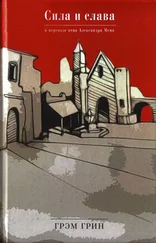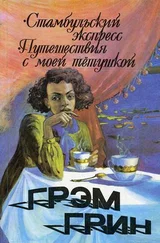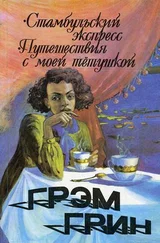Грэм Грин - The Comedians
Здесь есть возможность читать онлайн «Грэм Грин - The Comedians» весь текст электронной книги совершенно бесплатно (целиком полную версию без сокращений). В некоторых случаях можно слушать аудио, скачать через торрент в формате fb2 и присутствует краткое содержание. Год выпуска: 1966, Жанр: Классическая проза, на английском языке. Описание произведения, (предисловие) а так же отзывы посетителей доступны на портале библиотеки ЛибКат.
- Название:The Comedians
- Автор:
- Жанр:
- Год:1966
- ISBN:нет данных
- Рейтинг книги:3 / 5. Голосов: 1
-
Избранное:Добавить в избранное
- Отзывы:
-
Ваша оценка:
- 60
- 1
- 2
- 3
- 4
- 5
The Comedians: краткое содержание, описание и аннотация
Предлагаем к чтению аннотацию, описание, краткое содержание или предисловие (зависит от того, что написал сам автор книги «The Comedians»). Если вы не нашли необходимую информацию о книге — напишите в комментариях, мы постараемся отыскать её.
The Comedians — читать онлайн бесплатно полную книгу (весь текст) целиком
Ниже представлен текст книги, разбитый по страницам. Система сохранения места последней прочитанной страницы, позволяет с удобством читать онлайн бесплатно книгу «The Comedians», без необходимости каждый раз заново искать на чём Вы остановились. Поставьте закладку, и сможете в любой момент перейти на страницу, на которой закончили чтение.
Интервал:
Закладка:
'I have always felt that Mr Jones has great character. I'm very glad he's prospering.'
'If it's not at someone else's expense.'
At even that hint of criticism Mr Smith's expression slammed shut (he stirred his Yeastrel nervously to and fro) and I was seriously tempted to tell him of the telegram sent to the captain of the Medea. Wasn't it possibly a flaw in character to believe so passionately in the integrity of all the world?
I was saved by the sound of a car, and a moment later Martha came up the steps.
'Why, it's that charming Mrs Pineda,' Mr Smith exclaimed with relief. He rose and busied himself arranging a seat. Martha looked at me with despair and said, 'It's late. I can't stop. I've just brought a message from my husband …' She produced an envelope from her bag and pushed it into my hand.
'Have a whisky while you are here,' I said.
'No, no. I really must get home.'
Mrs Smith remarked, a little stiffly I thought, but perhaps it was in my imagination, 'Don't hurry away, Mrs Pineda, because of us. Mr Smith and I are just off to bed. Come along, dear.'
'I have to go in any case. My son has mumps, you see.' She was explaining too much.
'Mumps?' Mrs Smith said. 'I'm so sorry to hear it, Mrs Pineda. In that case you will certainly want to be at home.'
'I'll see you to your car,' I said and got her away. We drove to the end of the drive and stopped.
'What went wrong?' Martha asked.
'You shouldn't have given me a letter addressed to you in my handwriting.'
'I wasn't prepared. It was the only one I had in my bag. She couldn't have seen.'
'She sees an awful lot. Unlike her husband.'
'I'm sorry. What shall we do?'
'We can wait until they are in bed.'
'And then creep by and see the door open suddenly and Mrs Smith …'
'They're not on my floor.'
'Then we'll meet her for certain at the corner of the stairs. I can't.'
'Another meeting spoilt,' I said.
'Darling, that first night when you returned, by the pool … I wanted so much …'
'They still have the John Barrymore suite just overhead.'
'We can get under the trees. And the lights are out now. It's dark. Even Mrs Smith can't see in the dark.'
I felt an inexplicable reluctance. I said, 'The mosquitoes …' trying to account for it.
'Damn the mosquitoes.'
The last time we had been together we quarrelled because of her unwillingness. Now it was my turn. I thought angrily: If her house must not be defiled, why should my house be any less sacred? And then I wondered, sacred to what? A dead body in a bathing-pool?
We left the car and went as softly as we could towards the pool. A light was on in the Barrymore suite and the shadow of a Smith passed across the mosquito-netting. We lay down in a shallow declivity under the palms like bodies given a common burial, and I remembered another death, Marcel hanging from the chandelier. Neither of us would ever die for love. We would grieve and separate and find another. We belonged to the world of comedy and not of tragedy. The fire-flies moved among the trees and lit intermittently a world in which we had no part. We — the uncoloured — were all of us too far away from home. I lay as inert as Monsieur le Ministre.
'What's the matter, darling? Are you angry about something?'
'No.'
She said humbly, 'You don't want me.'
'Not here. Not now.'
'I angered you last time. But I wanted to make it up.'
I said, 'I never told you what happened that night. Why I sent you away with Joseph.'
'I thought you were protecting me from the Smiths.'
'Doctor Philipot was lying dead in the pool, just over there. You see that patch of moonlight …'
'Killed?'
'He had cut his own throat. To escape the Tontons Macoute.'
She moved a little away. 'I understand. Oh God, it's terrible, the things that happen. They are like nightmares.'
'Only the nightmares are real in this place. More real than Mr Smith and his vegetarian centre. More real than ourselves.'
We lay quietly side by side in our grave, and I loved her as I had never done in the Peugeot or the bedroom above Hamit's store. We approached one another by words more nearly than we had ever approached by touch. She said, 'I envy you and Luis. You believe in something. You have explanations!
'Have I? Do you think I still believe?'
She said, 'My father believed too.' (It was the first time she had ever mentioned him to me.)
'In what?' I asked.
'In the God of the Reformation,' she said. 'He was a Lutheran. A pious Lutheran.'
'He was lucky to believe in anything.'
'And people in Germany too cut their throats to escape his justice.'
'Yes. The situation isn't abnormal. It belongs to human life. Cruelty's like a searchlight. It sweeps from one spot to another. We only escape it for a time. We are trying to hide now under the palm trees.'
'Instead of doing anything?'
'Instead of doing anything.'
She said, 'I almost prefer my father.'
'No.'
'You know about him?'
'Your husband told me.'
'At least he wasn't a diplomat.'
'Or a hotel-keeper who depends on the tourist trade?'
'There's nothing wrong in that.'
'A capitalist waiting for the dollars to return.'
'You speak like a Communist.'
'Sometimes I wish I were.'
'But you are Catholics, you and Luis …'
'Yes, we were both brought up by the Jesuits,' I said. 'They taught us to reason, so at least we know the kind of part we play now.'
'Now?'
We lay there, holding each other, for a long while. Sometimes I wonder whether it was not the happiest moment we ever knew together. For the first time we had trusted each other with something more than a caress.
3
We drove out next day to Duvalierville, Mr Smith and I and the Minister with a Tonton Macoute for a driver; perhaps he was there to protect us, perhaps to observe us, perhaps just to help us pass the road-blocks, for this was the road to the north along which, as most people in the city hoped, the tanks from Santo Domingo would one day come. I wondered what good the three shabby militiamen at the road-block would be then.
Hundreds of women were flocking into the capital for market, riding side-saddle on their bourriques; they stared at the fields on either side and paid us no attention: we didn't exist in their world. Buses went by, painted in stripes of red and yellow and blue. There might be little food in the land, but there was always colour. The deep blue shadows sat permanently on the mountain slopes, the sea was peacock-green. Green was everywhere in all its varieties, the poison-bottle green of sisal slashed with black, the pale green of banana trees beginning to turn yellow at the tip to match the sand at the edge of the flat green sea. The land was stormy with colour. A big American car went by with reckless speed on the bad road and covered us with dust, and only the dust lacked colour. The Minister brought out a bright scarlet handkerchief and dabbed his eyes.
'Salauds!' he exclaimed.
Mr Smith put his mouth close to my ear and whispered, 'Did you see who those people were?'
'No.'
'I do believe one of them was Mr Jones. I may have been mistaken. They went very fast.'
'It seems unlikely,' I said.
On the flat shoddy plain between the hills and the sea a few white one-room boxes had been constructed, a cement play-ground, and an immense cockpit which among the small houses looked almost as impressive as the Coliseum. They stood together in a bowl of dust which, when we left the car, whirled around us in the wind of the approaching thunderstorm: by night it would have turned to mud again. I wondered, in the wilderness of cement, where the notional bricks had come from for Doctor Philipot's coffin.
'Is that a Greek theatre?' Mr Smith asked with interest.
Читать дальшеИнтервал:
Закладка:
Похожие книги на «The Comedians»
Представляем Вашему вниманию похожие книги на «The Comedians» списком для выбора. Мы отобрали схожую по названию и смыслу литературу в надежде предоставить читателям больше вариантов отыскать новые, интересные, ещё непрочитанные произведения.
Обсуждение, отзывы о книге «The Comedians» и просто собственные мнения читателей. Оставьте ваши комментарии, напишите, что Вы думаете о произведении, его смысле или главных героях. Укажите что конкретно понравилось, а что нет, и почему Вы так считаете.



